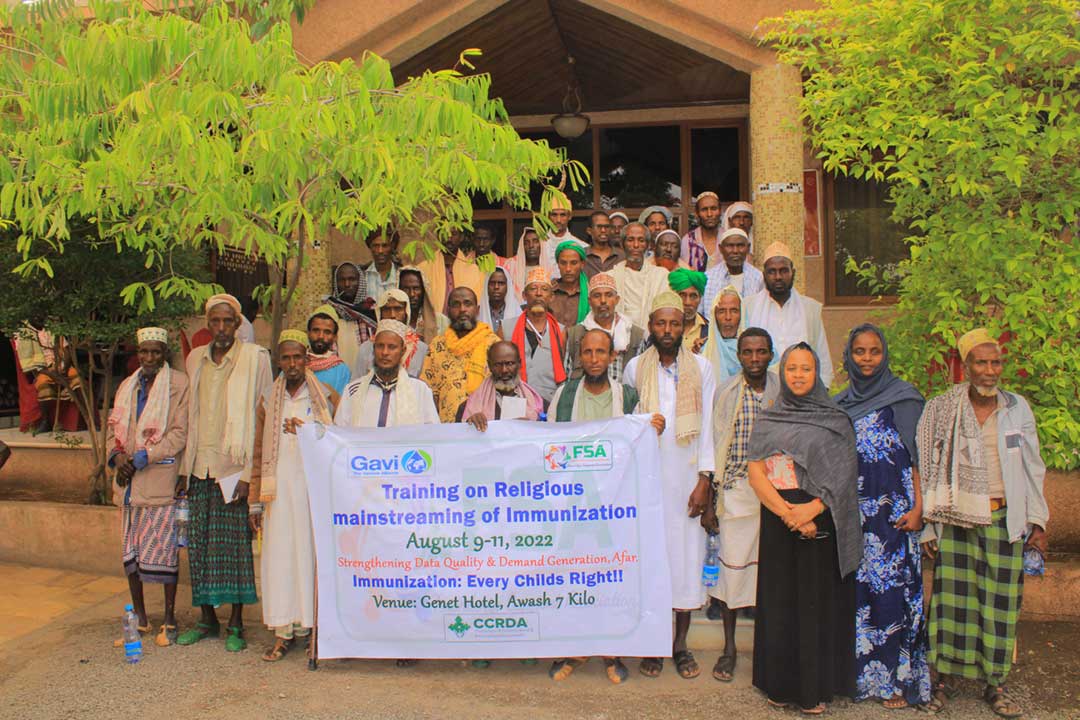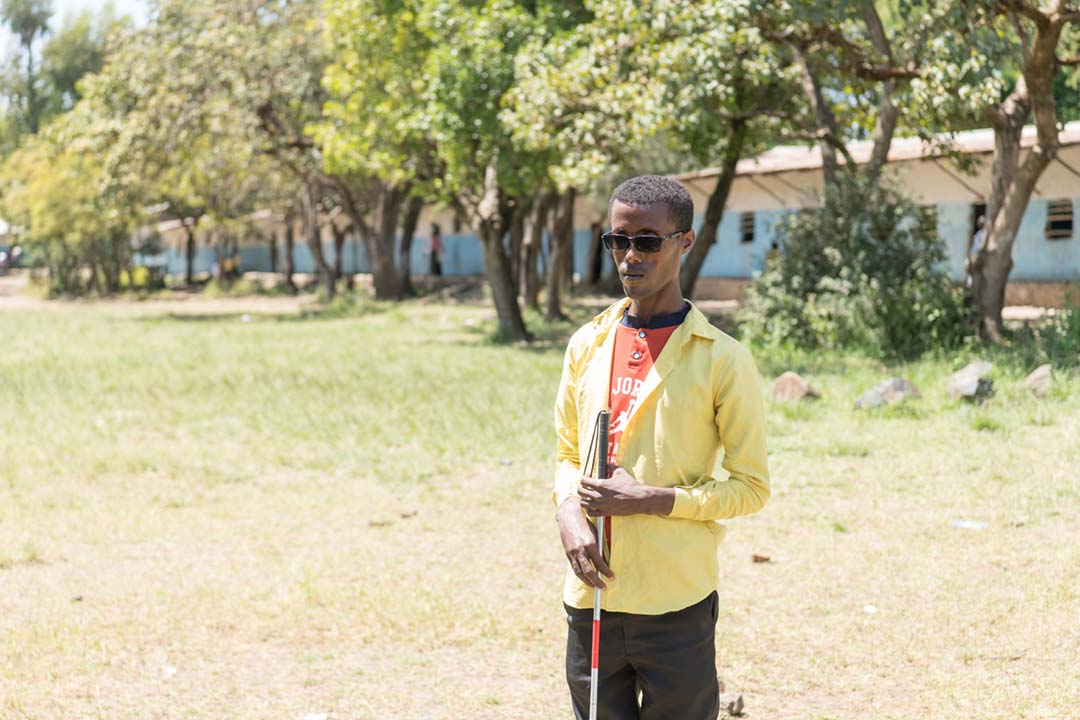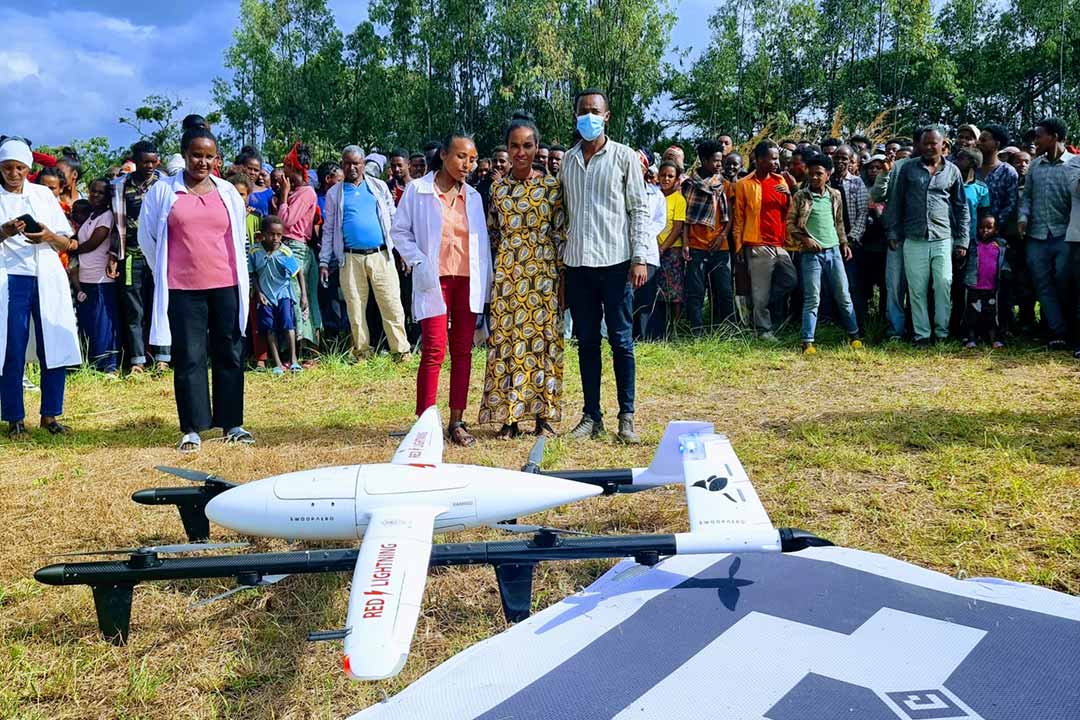Caregivers in an Ethiopian orphanage strive to tackle immunisation barriers
“They are doing incredible work,” an immunisation specialist from Injibara Health Centre says of the stretched staff of the local orphanage.
- 5 June 2023
- 6 min read
- by Solomon Yimer
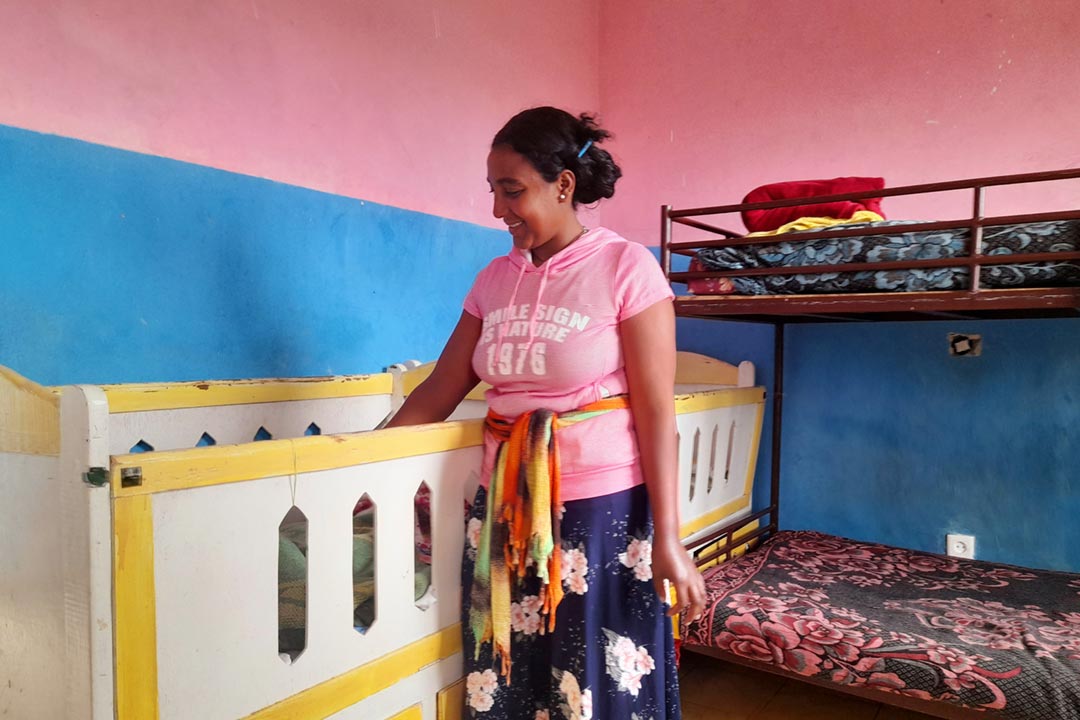
Caregivers at Injibara Children's Home in Ethiopia begin each day ensuring the little ones under their care are well-fed, groomed, and ready for school. But their duties don't stop there: keeping the children healthy and safe from preventable diseases is a vital part of their job.
That's not always easy. Caregivers face multiple challenges to get the kids in the orphanage the vaccinations they need.
“Since [the centre’s] establishment some 20 years ago, we are working as a family and we all have similar understanding when it comes to children’s health.”
– Cerbitas, orphanage coordinator
Serkalem Berihun, 28, has been working at the Home for four years now. She is someone who takes her job seriously, and treats every child she works with as her own. She considers taking care of the kids' health the most important part of her job.
"I know how important vaccination is for the kids to stay healthy and protected from diseases," she says.
Her colleague, Sintayehu Abera, agrees. "Like mothers, we are responsible to ensure that every child receives the necessary vaccinations to protect their health."
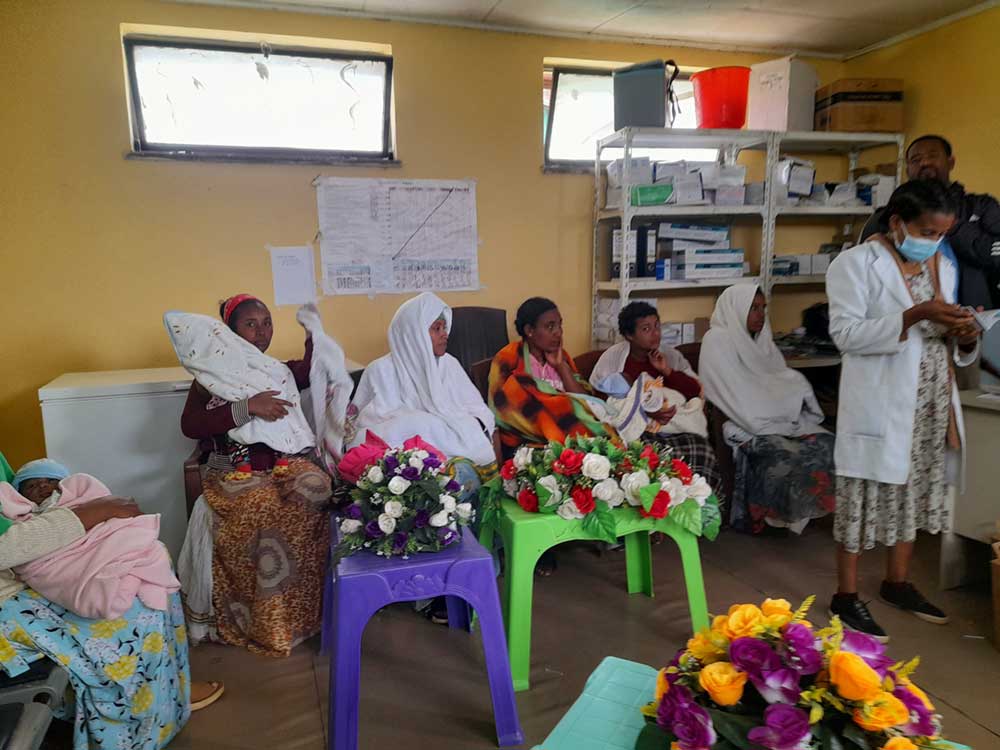
Credit Solomon Yimer
She finds her job satisfying on a personal level, she says. Over the years, she has had the privilege of caring for many children. Seeing them grow up makes her feel proud and accomplished.
But a lack of resources and information, and limited access to medical facilities, are hurdles on that road. There are times that caregivers from the Children's Home have turned back from health facilities without getting the kids vaccinated, due to shortages of vaccines or other necessary items, like syringes.
"We are sometimes told to bring the children another day because of shortage in vaccine supplies," Serkalem says. That's a pressure faced by local mothers too – but the orphanage caregivers are stretched thin, aware that during hours spent in health centre queues, a number of children back at the centre may be going without the attention they need. "The overall health service we received from local medical centres is improved over time, but still there are things which need attention."
"My mind is divided in two," Sintayehu explains, "between being here [at the clinic] and at the centre." Still, she says, health workers are supportive, offering orphanage workers a pass to the front of the queue when possible.
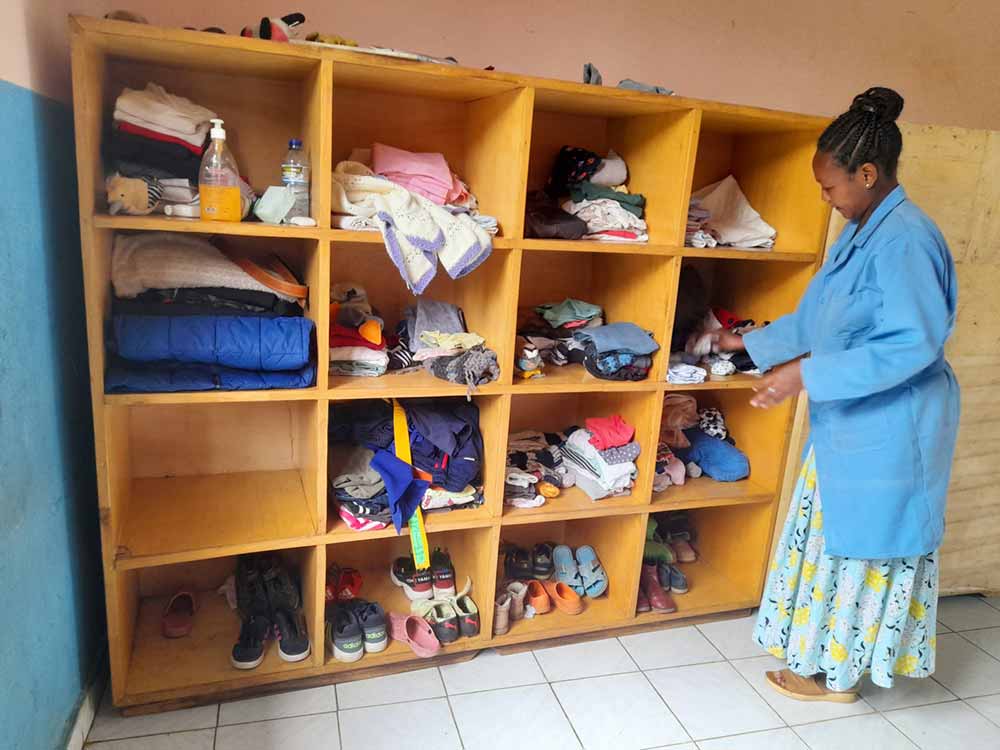
Credit: Solomon Yimer
Supply concerns hit other areas of health. Serkalem says it is sometimes difficult to get treatment for malnourished children who are admitted to the children's home.
"Due to limited resources and knowledge, we can't help such kids to recover, so we are forced to take them to a clinic in order to get treatments." she says. "Sometimes health workers couldn't help, when they run out of supplies for the treatment."
As material resources sometimes run short, so does information. Many of the children come from rural areas where healthcare services are limited, and their families were not aware of the importance of vaccination, the Injibara Children's Home staff explain.
Have you read?
In these cases, caretakers find themselves on an unexpected frontline – having to educate the families to dispel any myths or misconceptions about vaccination.
According to a recent report from the World Health Organization, vaccine coverage among vulnerable children living in orphanages and homeless shelters may be lower than the general population. This is due to a variety of factors, including limited access to healthcare services and a lack of awareness about the importance of vaccination.
For the last six years, Cerbitas has been serving at the orphanage as coordinator. Her role includes looking after the children's education and overseeing their overall health and wellbeing.
"Currently we have 47 children [aged between 12 days to 14 years] at the orphanage. We assign up to seven children to a caregiver at the centre." she explains. "Since [the centre's] establishment some 20 years ago, we are working as a family and we all have similar understanding when it comes to children's health."
When Cerbitas and her team receive new children into their care, they make an effort to gather all necessary information about the health of each child. That includes their vaccination status. But this can prove to be a challenging task, particularly for orphans from rural and remote areas where access to healthcare services is limited.
The team reaches out to local healthcare centres in these areas to try and obtain the necessary information. That doesn't always work. In such cases, they resort to conducting medical assessments themselves. The orphanage employs a staff nurse who is trained to perform such assessments and prepare a medical report on each child's condition.
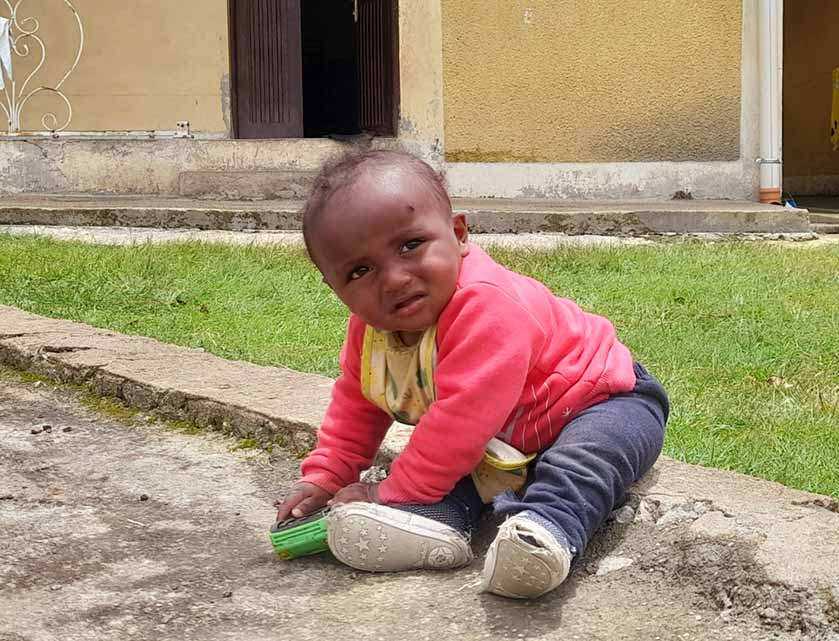
Credit: Solomon Yimer
"We have to make sure that we have a comprehensive understanding of each child's health condition, so we can provide personalised care that meets their unique needs," explains Cerbitas. "It also enables us to give accurate information to healthcare providers in case of emergencies or any medical issues that may arise."
According to her, orphanage caregivers learned a lot from the nurse, who saw value in passing on basic nursing skills. But Cerbitas wishes that all the caretakers could receive additional training on vaccination, child health care, and nutrition.
She believes that this extra knowledge will help strengthen their capacity to protect the children from preventable illness – infectious, or otherwise.
Thankfully, the orphanage maintains good, regular contact with the local health centre, and the health workers were always willing to support them in many ways.
"During the recent COVID pandemic, for instance, one of the health workers from the town's health post came and taught the orphanage community how to prevent the spread of the disease," Cerbitas recalls. "We are always happy to work with them."
Tenagne Anagawu, immunisation expert at Injibara Health Centre, maintains a close rapport with the caregivers at Injibara Children Home.
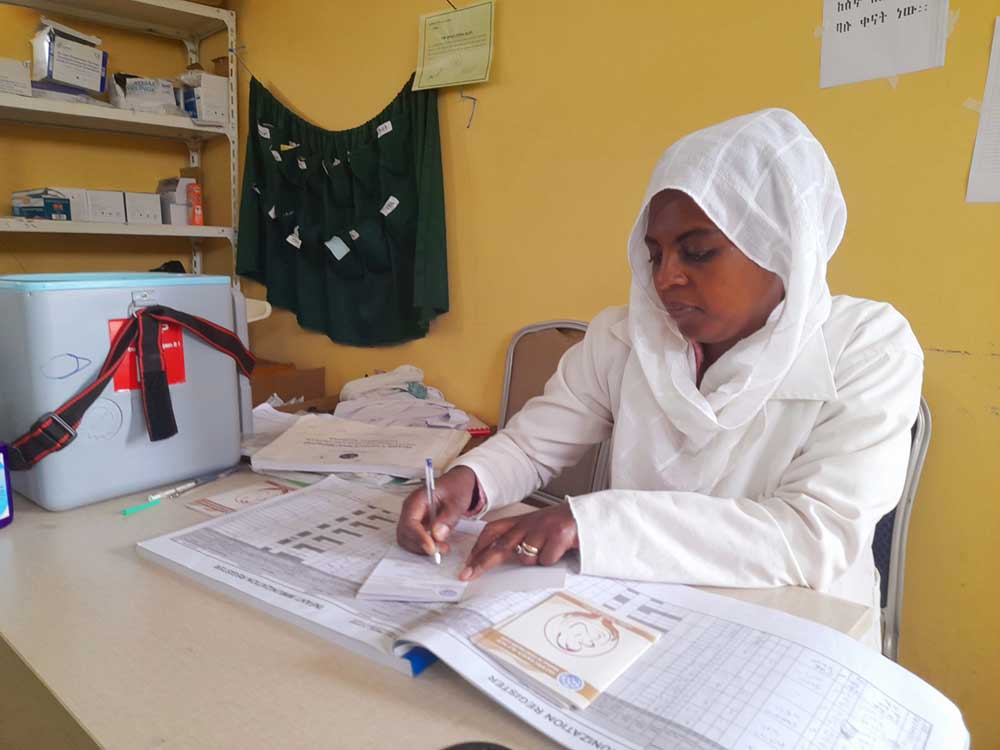
Credit: Solomon Yimer
From her perspective, orphanages like Injibara's concentrate both risk and opportunity: "These centres are high risk areas for breakouts and the spread of disease. We are working closely with orphanage centres in our region. As they are places we potentially reach a large number of children at a time, we sometimes have special campaigns targeting these centres: for instance recently we have conducted a COVID vaccination campaign in these places," she explains.
She also comments on the challenges that they face. "Many of the caregivers are working with limited resources and knowledge. They often lack the necessary resources and training to provide the healthcare services that the children need," she says. "But they are doing an exemplary role when it comes to immunisation.
"They are doing incredible work," she repeats. "They are working tirelessly to ensure that every child in their care receives the necessary vaccinations to protect their health."
